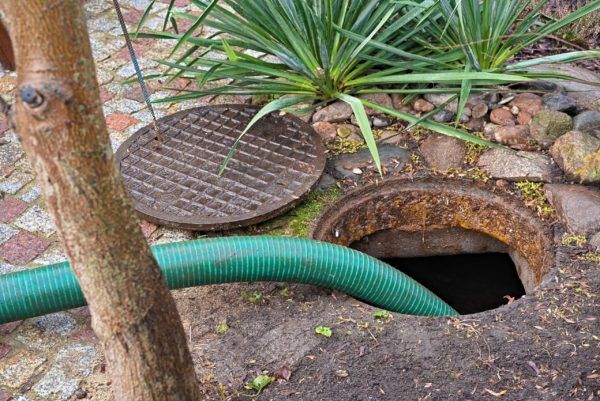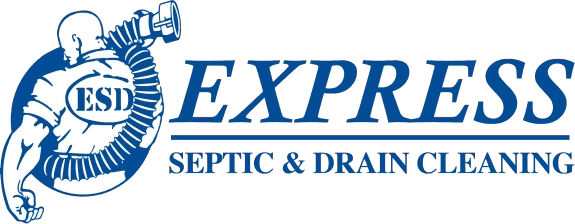Septic tanks require regular inspection and maintenance for smooth functioning. Generally, pumping a septic tank every three to five years is adequate, but if you notice any signs of malfunctioning, you should get it inspected and serviced immediately. Furthermore, some experts recommend that you pump the septic tank every two years if a large family is living in your house. This will reduce the chances of your septic system becoming overloaded and malfunctioning. The process takes about 20 minutes with the proper equipment.
How Often Should You Pump Your Septic Tank?
The frequency of when you should get septic tank pumping depends on several factors. We’ll explore these below.
Size of Household
The household size determines the quantity of wastewater that goes into the tank. If more people are present, it will require frequent septic pumping to prevent clogging and other problems from arising in the system.
Quantity of Water Generated
Generally, a system can accommodate up to 2,000 gallons of wastewater, depending on its size and usage rate. The more water a house produces, the more frequent pumping is needed. If your home generates a lot of wastewater regularly, it is best to book an appointment with septic tank professionals once every two years or so.
On the other hand, if there is minimal wastewater production and usage of water-saving appliances, then this interval can extend up to five years. At Express Septic & Drain Cleaning, we always recommend consulting a professional for accurate advice.
Septic Tank Size
A larger tank needs more time to pump and is likely to require frequent cleaning. The tank size depends on the number of people in your family. A household with four members should have a septic tank of 1,000 gallons, while a house with six members should have one with 1,500 gallons.
If you have a bigger septic system or enough space for expansion, you can always upgrade it when needed. Other determinants include the pump you use and the method applied. Our professionals use the best pump for the process, which is a submersible one attached to a grinder.
The Volume of Solids in the Wastewater
A conventional septic tank must be emptied when the solid amount is at least 25% of the total capacity of your tank. That makes it necessary to conduct routine checks and inspections regularly so that you can determine if pumping is needed or not. High volumes also take a longer time to pump.
How Will You Know If Your Septic Tank Is Full?
Here are some important signs to look out for that indicate your tank is full.
Sewage Backup
When wastewater starts to back up in your house, your septic system cannot handle the load and needs some help from an experienced professional for regular maintenance or repair work. A sewage backup is uncomfortable and a significant health hazard that requires a prompt response.
Increasing Plant Growth
Increased levels of plant growth near the system could also result from a full septic tank. This happens because, with a full tank, wastewater spills out into the surrounding area, causing an increase in nutrient-rich soil, which promotes plant growth.
Clogged Drain Field
When your septic tank is full, the wastewater is not filtered properly and starts moving toward the drain field. This clogs up the drain field, resulting in wastewater flowing back into your house or yard.
Odor
An unpleasant odor is usually the first sign of a full septic tank. As wastewater and sewage accumulate, it starts to overflow and spread a bad smell around your home. Check your system promptly if the smell is persistent with no plausible cause and contact a professional for intervention.
Sluggish Draining or Flushing
If you recently notice slow draining showers, washing machines, draining tubs, or slow flushing, it is a probable indicator that your septic system needs in-depth cleaning.
Standing Water
When wastewater does not flow, it accumulates and eventually forms standing water in the yard or around your house. The only way to expel this standing water is to call professional help for regular maintenance and repair work.
How Does Maintaining a Septic System Determine Pumping Time?
Apart from maintaining a regular pumping schedule, these simple and effective factors can reduce septic pumping time.
Maximize Washing Machine Loads
A full load requires less water than two half-loads put together, leading to lower water levels in the tank. Moreover, if you spread out your laundry over several days instead of doing them all at once, it reduces the strain on your septic system. Less strain means faster pumping. You must also use low-sud detergents specifically designed for septic systems and avoid high-sud formulas containing bleaches or chlorine.
Reduce Water Usage
When you manage your water usage, fewer solids enter your tank than when more water enters it. This helps keep the solid level down in the tank, allowing for easier maintenance and faster pumping services.
You can also use low-flow toilets and other fixtures that reduce water wastage. Doing this will help you save money on your energy bills while maintaining a healthy septic system at home.
Dispose of Waste Properly
Regular pumping and proper disposal of wastewater help prevent build-up in the septic tank. The process ensures that your system runs smoothly and efficiently, which helps reduce pumping time or any repair costs substantially.
Disposing of waste properly also keeps the environment safe as it prevents sewage from overflowing into water sources near you. Additionally, Express Septic & Drain Cleaning uses only eco-friendly techniques to dispose of all types of materials removed from your septic system, so you don’t have to worry about polluting the environment.
You should never flush:
- Baby wipes
- Dental floss
- Cigarette butts
- Feminine hygiene products
- Cat litter
Likewise, do not pour toxins down the kitchen sink. Never pour:
- Chemical drain openers
- Paints or oil-based solvents
- Cooking oil or grease
Cost Considerations
The main factors determining the time and cost of pumping septic tanks are related to how well you maintain the system and the quantity of solid waste and wastewater in the tank. Other factors affecting the cost are discussed below.
Maintenance
Neglecting regular maintenance can lead to costly repairs or even the replacement of major components. Regular maintenance includes pumping, inspection, and treatment.
Pumping: It is important to pump out your tank regularly, depending on the number of people in your house. Not doing so can result in overflows and unhealthy wastewater disposal from the tank.
Inspection: A qualified inspector should check for potential issues like holes in pipes, damaged baffles, cracked tanks, and more every time you get a pumping service done.
Treatment: If bacterial growth is in your septic tank, it can be treated with a special enzyme-based treatment to keep the system in a healthy condition.
Efficiency
The cost of septic system pumping depends on the size and efficiency of your tank. Smaller tanks with higher levels of efficiency will cost less for maintenance and repair work. On the other hand, bigger tanks take more time to clean, which costs more.
Rely on the Pros
Express Septic & Drain Cleaning has been providing expert septic tank services in Nampa, ID since 2006. Along with septic tank pumping, repair, inspections, and maintenance, we also offer enzyme treatments and Earthbusters, as well as baffle repair and riser installation. Our team is available 24 hours a day, seven days a week, 365 days a year to assist you. Contact us today to inquire about our services available throughout the Treasure Valley.



